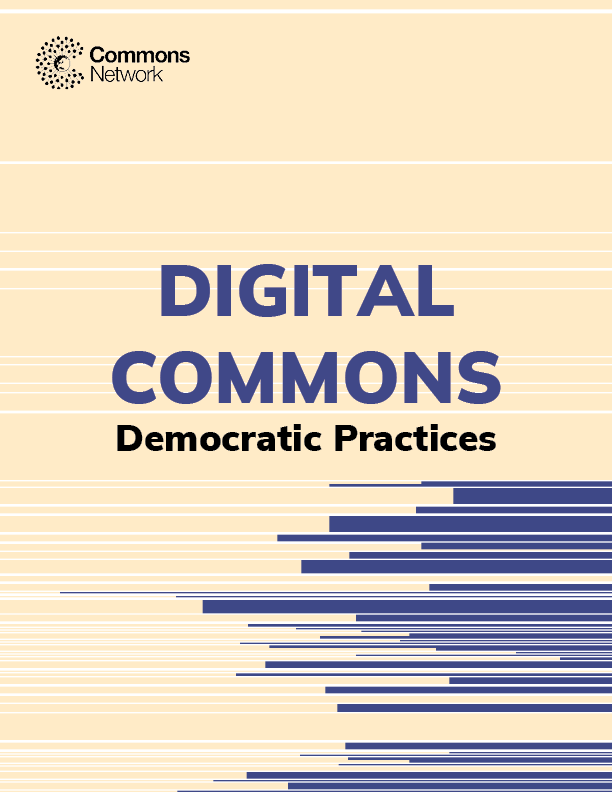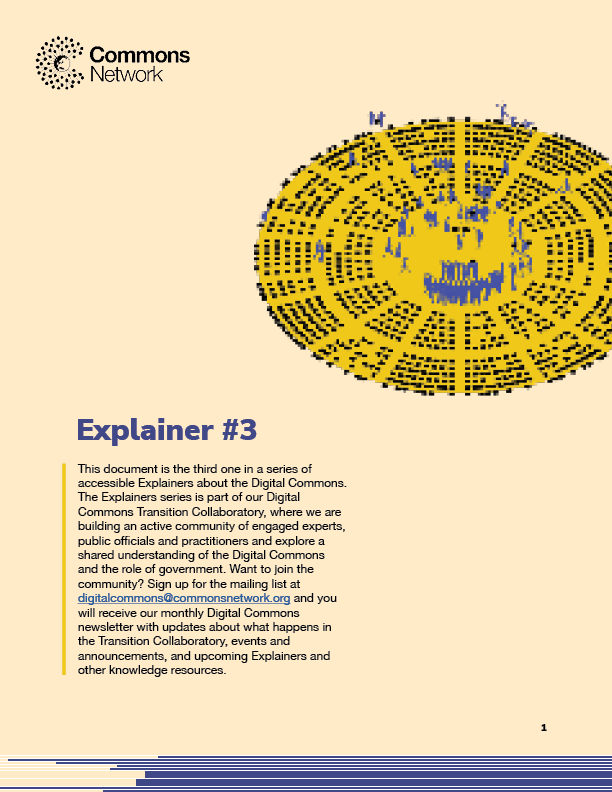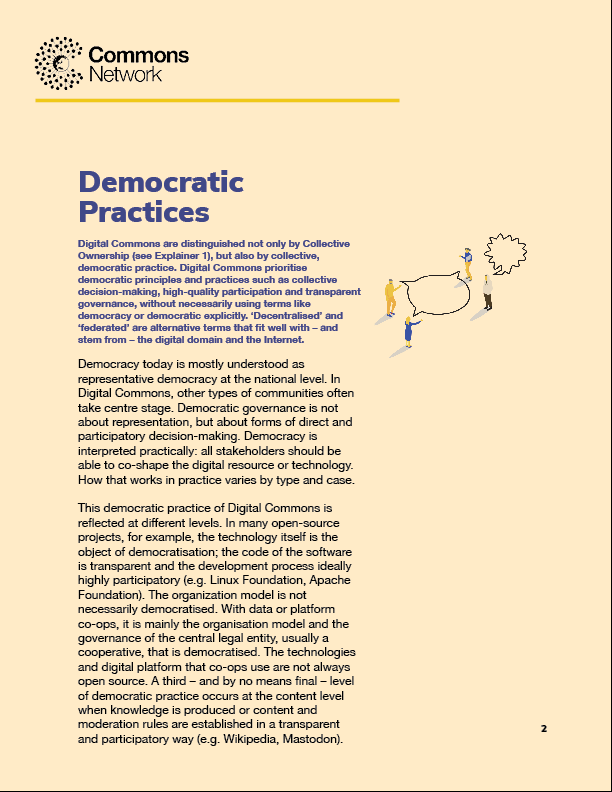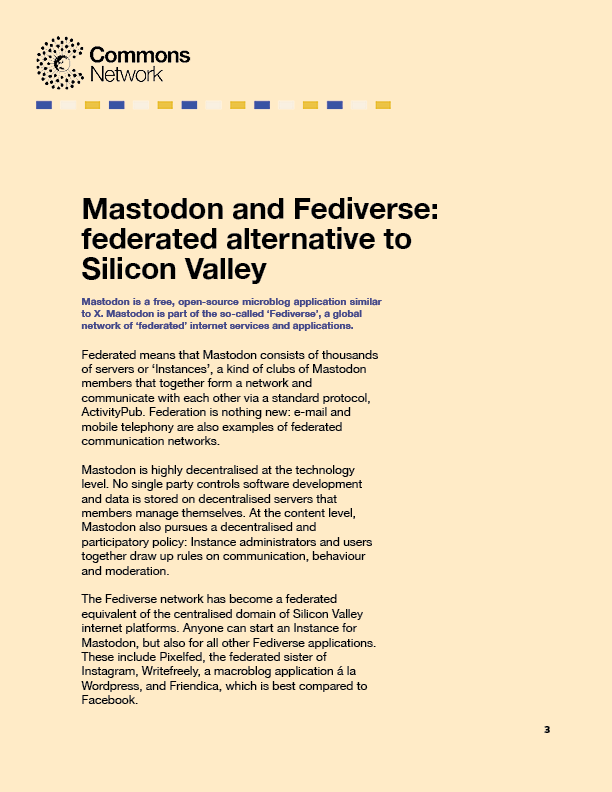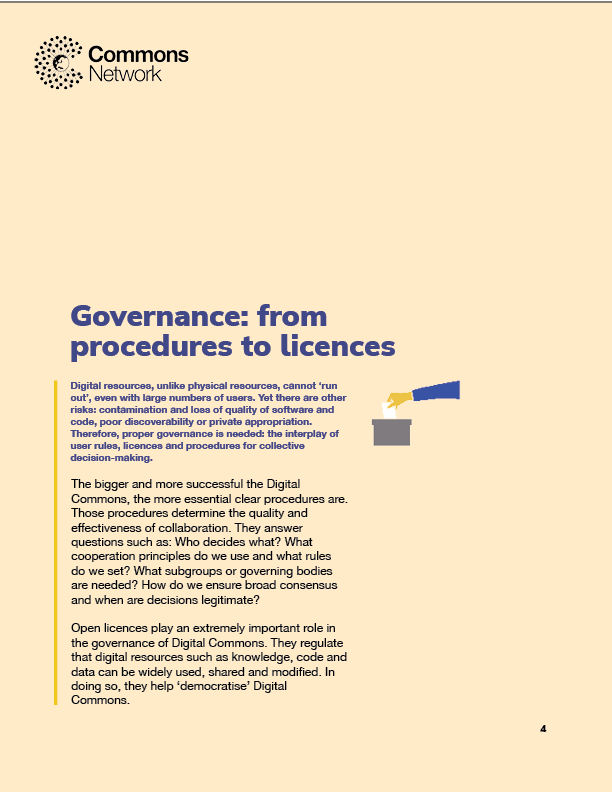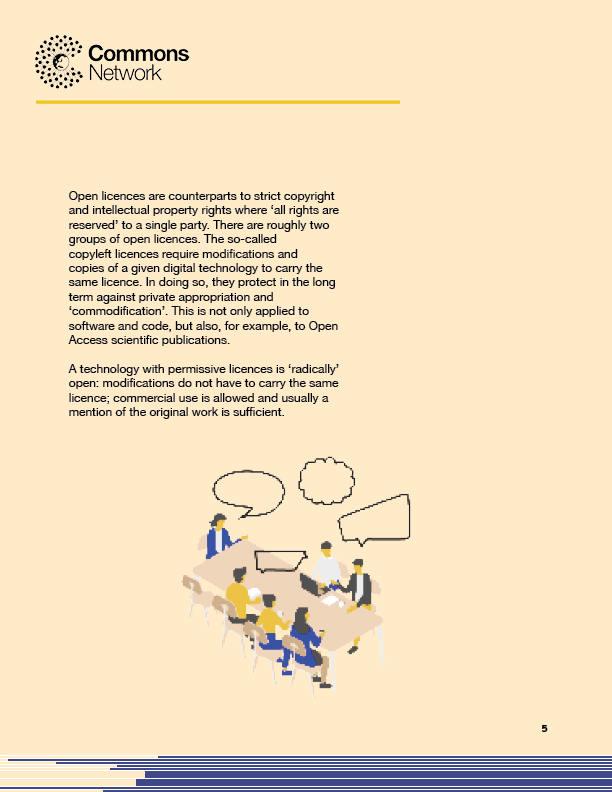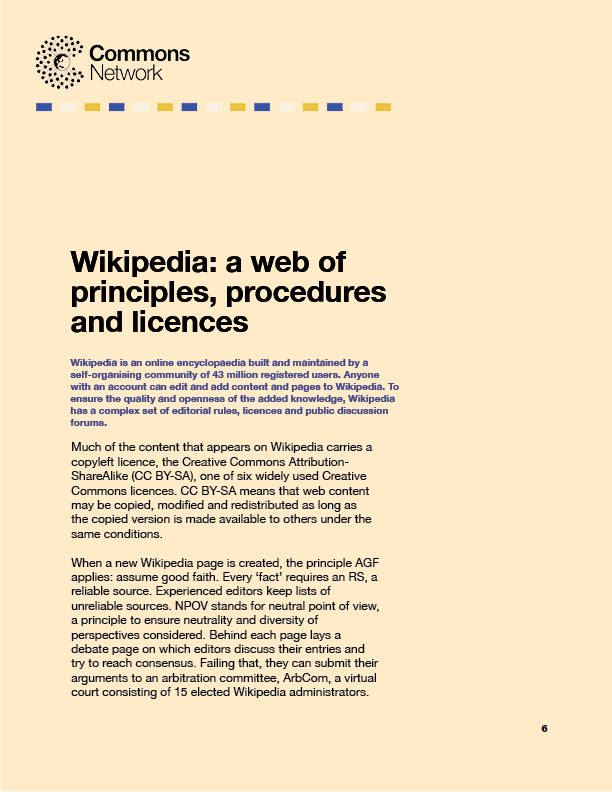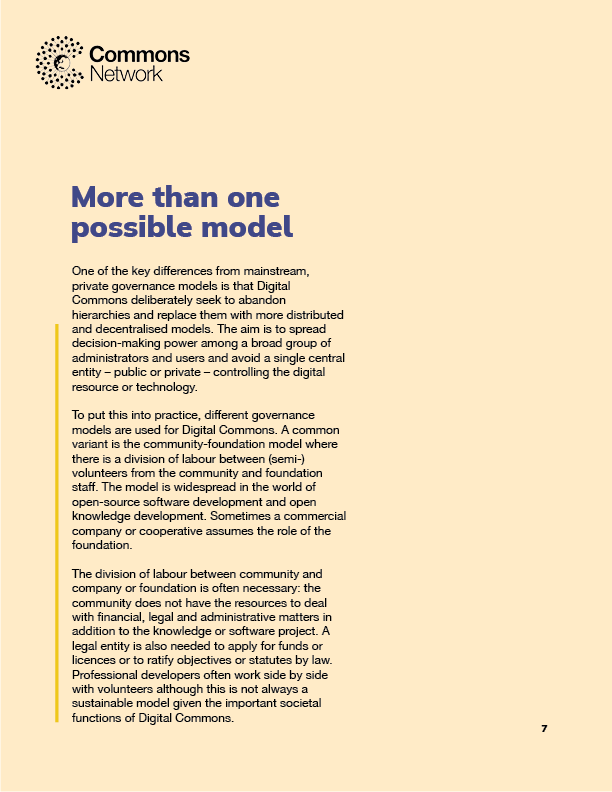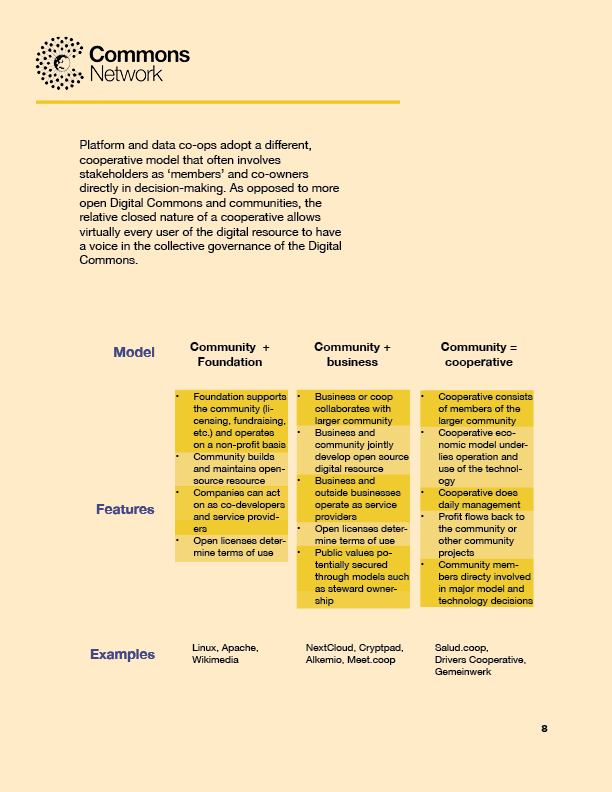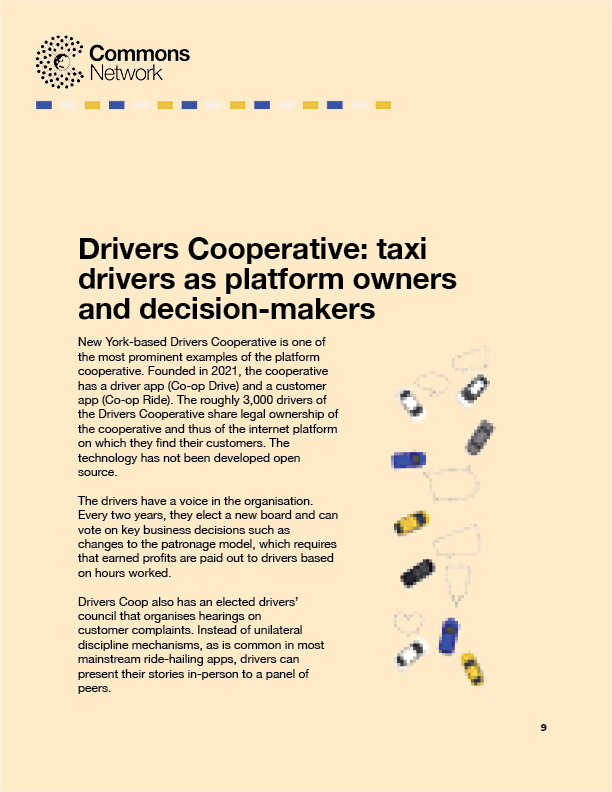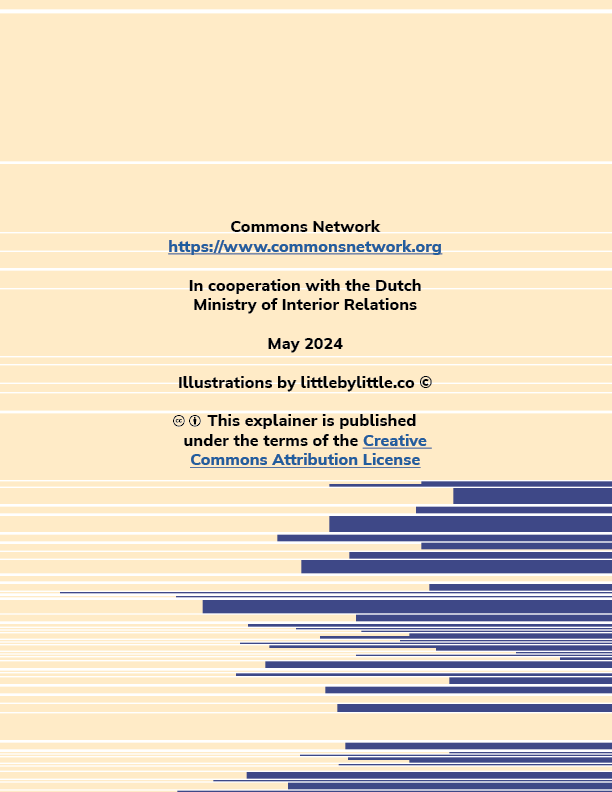In our latest exploration of Digital Commons, we discuss various forms of democratic practices. Our latest explainer is the third one in a series of accessible Explainers about the Digital Commons. The Explainers series is part of our Digital Commons Transition Collaboratory, where we are building an active community of engaged experts, public officials and practitioners and explore a shared understanding of the Digital Commons and the role of government.

Illustration by littlebylittle.co
Commons Network has already formulated 3 explainers in which we consisely discuss the building blocks of Digital Commons and Digital Public Infrastructure, and the possible role(s) of government, using appealing examples. In our first explainer, we discussed the opportunities and potential for digital commons, situating the Digital Commons in the Dutch political arena. In our second explainer, we explored the different forms of collective ownership – one of the key building blocks of the Digital Commons. Collective Ownership is a direct counterpart to the Private Ownership that currently dominates the digital domain and an important addition to Public Ownership by governments.
Digital Commons are distinguished not only by Collective Ownership, but also by collective, democratic practice. That is why in our third explainer, we explore the democratic principles and practices that Digital Commons prioritises; these include collective decision-making, high-quality participation and transparent governance, without necessarily using terms like democracy or democratic explicitly. ‘Decentralised’ and ‘federated’ are alternative terms that fit well with – and stem from – the digital domain and the Internet.
Democracy today is mostly understood as representative democracy at the national level. In Digital Commons, other types of communities often take centre stage. Democratic governance is not about representation, but about forms of direct and participatory decision-making. Democracy is interpreted practically: all stakeholders should be able to co-shape the digital resource or technology.
Download the explainer on democratic practices here.
Want to join the community? Sign up for the mailing list at digitalcommons@commonsnetwork.org and you will receive our monthly Digital Commons newsletter with updates about what happens in the Transition Collaboratory, events and announcements, and upcoming Explainers and other knowledge resources.
 ☰
☰
